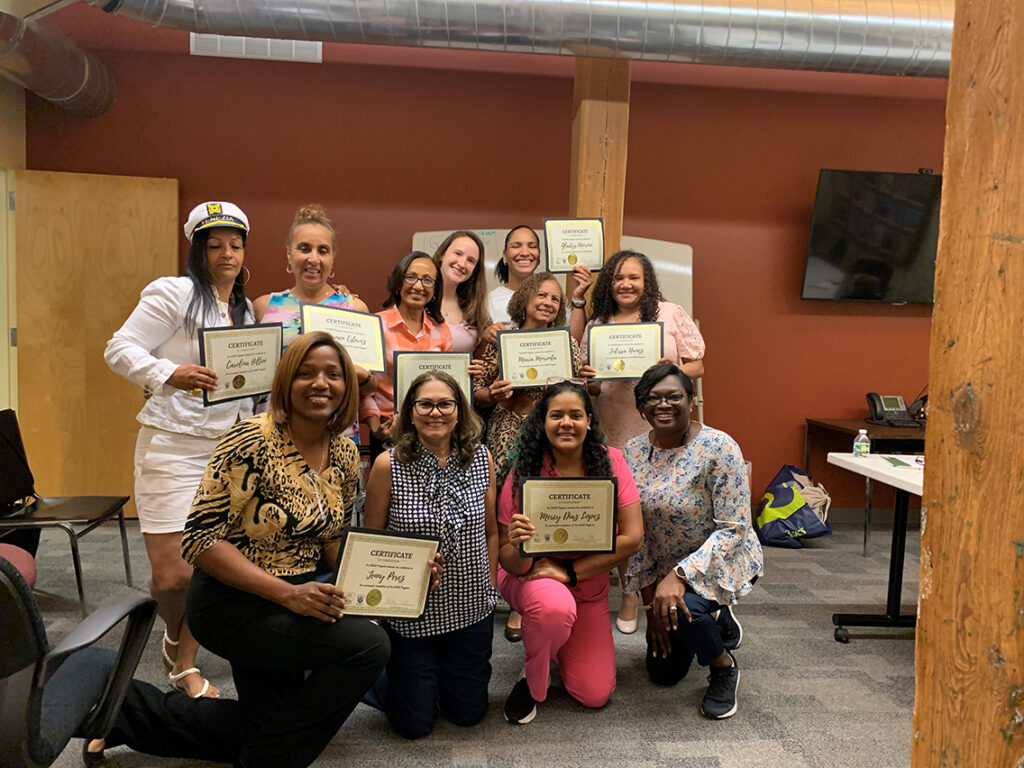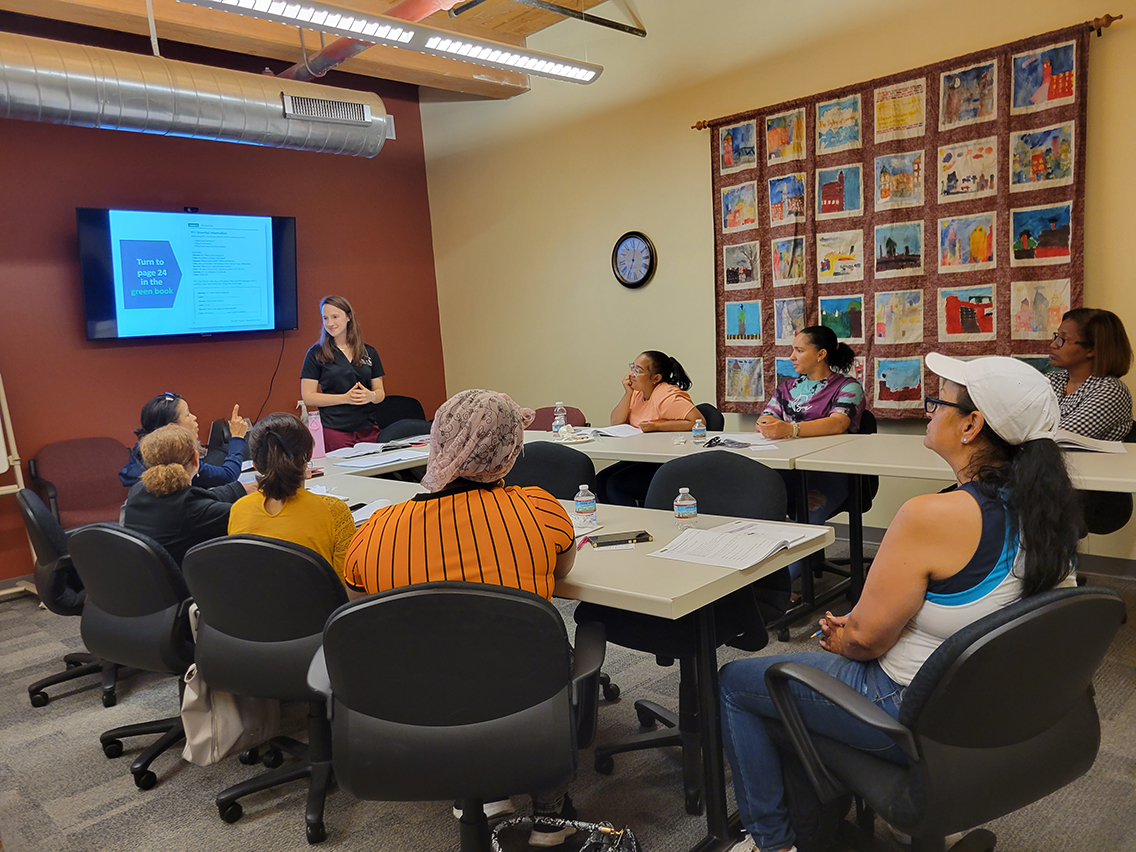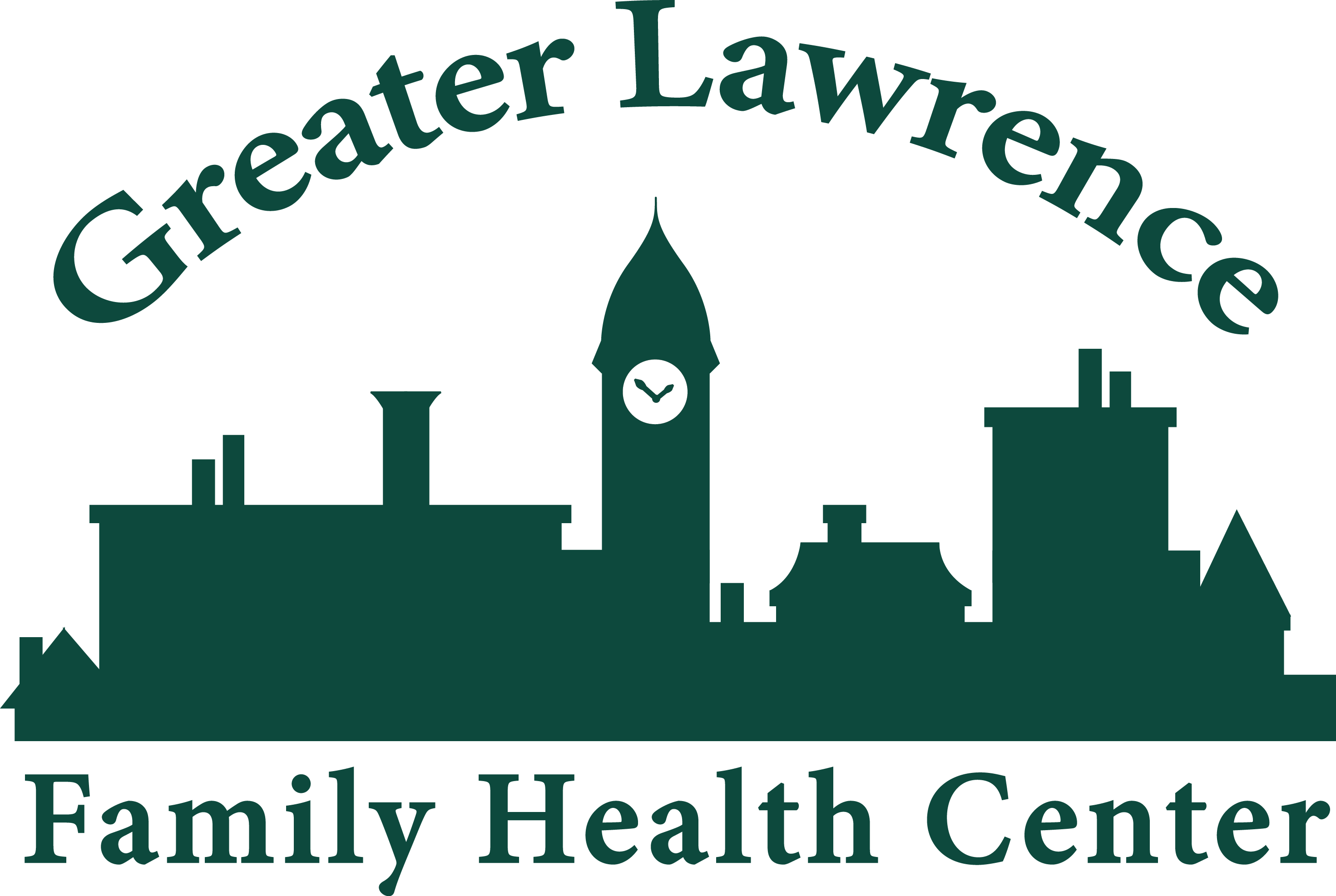
October is Health Literacy Awareness month, and Greater Lawrence Family Health Center (GLFHC) wants you to know what it is, why it’s important, and how to learn more.
Literacy is a stronger predictor of a person’s health than income, employment status, education level, or race or ethnicity, says Ashley Hall, Director of GLFHC’S Merrimack Valley Area Health Education Center (MV-AHEC). An estimated 35-percent of all adults in the United States do not have the ability to understand basic health information and services to make appropriate decisions. People with low health literacy are more likely to skip important preventative measures and to enter the health care system when they’re sicker. They’re more likely to have chronic conditions and less likely to manage them effectively. They are significantly more likely to report their health as poor.
Low health literacy doesn’t just affect patients. It strains the health care system itself, resulting in preventable hospital visits and admissions, longer stays, higher readmission rates, and extra tests, procedures and prescriptions. The estimated health costs of low literacy in the U.S. are $106 billion to $236 billion. For businesses, improved health literacy of employees can increase productivity and reduce sick leave.
Drawing on its expertise as a premier adult literacy organization with a 48-year record of accomplishment, Literacy for Life designed the innovative HEAL Program to address the issue of low health literacy Hall became a certified HEAL instructor in November of 2018. The program addresses health literacy in two ways. The first is a one-hour workshop for any healthcare worker on how to be more health literate in their profession. The second is an eight-week class to the community for adult learners who are new to the English language and/or the U.S. healthcare system about finding, using, and applying health related information to live a healthier life.
Learners in the eight-week class learn to describe symptoms, read medication instructions, know when to use urgent care versus a hospital emergency room, understand medical forms, ask medical staff questions, and identify healthy lifestyle changes. Hall recently taught an eight-week session of the HEAL class to 10 Lawrence residents in partnership with the Lawrence Mayor’s Health Task Force. One participant shared, “Now I know I can ask the doctor questions when I do not understand. I will never go home without knowing what to do to stay healthy.”
If you want to learn more about health literacy visit https://medlineplus.gov/healthliteracy.html or contact Hall at ashley.hall@glfhc.org or (978) 722-2864.

